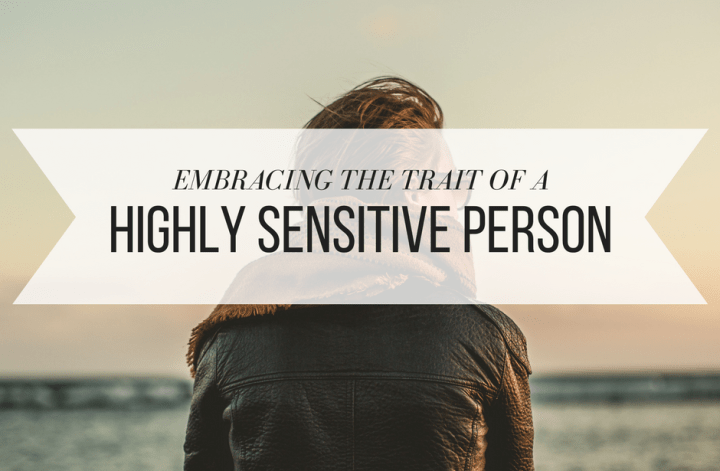
Do you tend to experience the world more strongly than others? Do you avoid watching or hearing about violence? Are you often emotionally exhausted after being around a lot of people? Are you highly empathetic and overwhelmed by the suffering of others? These are all signs of being a highly sensitive person (HSP). The HSP is very in tune with their environment, other peoples’ emotions, and their inner self. They often need more downtime and a less stimulating environment than those who are not highly sensitive.1
HSPs tend to have less satisfying relationships. This is because HSPs are highly aware of their partners’ behaviors, which leads to overthinking. They can also quickly discern what their partner likes, leading the HSP to change things about themselves to make their partner happy. Over time, the HSP may begin to feel exhausted and unappreciated when their efforts are not matched. HSPs whose culture does not value sensitivity in people often have low self-esteem and feel like they need to change. They don’t need to change. Being a HSP is not a flaw or a disorder, it is a natural trait. If you identify as a HSP, please, please embrace your unique self. Work on the areas that cause you distress, but otherwise know your strengths as a HSP.
The universe needs people like you who:
- think deeply
- are intuitive
- demonstrate empathy and care
- are open-minded
- are more informed decision-makers
- consider consequences
- pay attention to detail
- are considerate of others
- work well in a team setting
- are superb leaders
These qualities are great for working in caring professions, but it is important to know your risk for experiencing compassion fatigue. Compassion fatigue is emotional, mental, spiritual, and physical exhaustion that occurs when being exposed to the suffering of others over a period of time. Because HSPs feel so deeply, they often take on the suffering of those they care for.
As a HSP, it is important to practice self-care and engage in certain behaviors that will help you to cope in a highly stimulated society.
- Triggers-know the various triggers that cause you distress. For example, some HSPs feel overwhelmed when the environment is too loud. Knowing this, the HSP may decide to invest in some noise-cancelling headphones.
- Quiet time-make time before bed to disconnect from technology and create a calming environment. Start the next day with calmness through meditation, yoga, journaling, or reading a book.
- Relaxation techniques-collect different methods of relaxation. For instance, deep breathing reverses the rapid breathing that occurs when responding to stress. Take a slow breath in and count 5-10 seconds. When breathing in pay attention to your lungs filling with air. Then breathe out slowly (5-10 seconds) like you are breathing through a straw. Repeat these steps until you feel a sense of calmness.
- Take a break-if you are at a family gathering or decide to host a party and you become overly stimulated, take a break. Walk outside or to another room and don’t feel bad for it.
- Let people know-sometimes letting people know that you are highly sensitive to ____, they will be more understanding of your responses. This may also help you feel relief because you can start being yourself, not having to hide this side of you.
- Find support-if you are being told by others that you are too sensitive, make sure you find people who embrace your unique traits. There are several social media groups who support one another and offer encouragement in a world that does not always accept HSPs. On Facebook, there are two different groups that target highly sensitive people and have more than 36000 members.
- Only own what is yours-The HSP often takes on the problems of others, which is not a good idea in any situation. One, you are taking away the learning experience of that person. Two, you are putting too much on yourself. Show compassion, but avoid absorbing the suffering of others.
- Educate-learn more about hypersensitivity and how your sensitivities impact you. Those who are not aware often experience anxiety and depression. A great book to read on the subject is The Highly Sensitive Person by Elaine Aron.
- Mindfulness-being aware of the mind and body responses can help the HSP make changes to their thoughts. Being self-aware of negative thoughts/emotions can help replace these with healthier thoughts and emotions. Also, recognizing that these distressing thoughts/emotions are temporary can help the HSP work through it.
- Boundaries-the HSP wants to help others, which leads to the neglect of one’s own needs. Set your own boundaries after considering that your job is not to fix people and you can say no, even if people get mad at you. Also, accept that “no” is a complete sentence. You do not have to justify why you don’t want to do something. But, if it makes things easier, you might say “I wish I could, but I can’t” or “thanks for thinking to ask me, but I can’t.”
- Take care of your body-The HSP is often sensitive to certain foods, medications, or drugs. Avoiding processed foods and caffeine, exercising, getting enough sleep, and avoiding nicotine and drugs are important for optimal responses to stress. Some HSP are highly sensitive to medications and should be discussed with a medical professional before starting a new medication.
Silence is a source of great strength. –Lao Tzu

